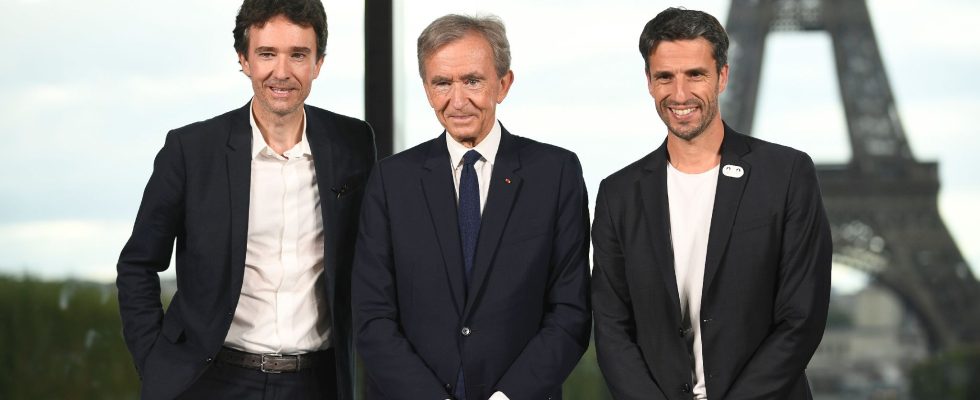Bernard Arnault’s empire has been desired, he will finally be a sponsor of the Paris 2024 Olympic Games. His check for 150 million euros, according to AFP, places him among the largest contributors and allows the Organizing Committee of the Olympics to get closer to its objective of 1.24 billion in funding from private partners. For Lionel Maltese, lecturer at the University of Aix-Marseille specialist in sports marketing, LVMH was in a strong position to negotiate its presence.
L’Express: LVMH announced on Monday July 24 that it would be a partner of the Paris 2024 Olympics after lengthy negotiations. Companies do not rush to sponsor the event?
Lionel Maltese: This partnership comes late, but it is logical, it establishes a link between France, luxury and the Olympic Games in Paris. But in general, it is increasingly difficult today to find sponsors for sporting events, because of very high entry fees, much more than mere advertising costs. In addition, the Olympic Games attract a very large number of sponsors, those of the IOC in addition to those of the Organizing Committee of the Olympic Games, among which we count Airbnb, but also Accor, Coca-Cola, Intel, Toyota, Groupe BPCE, Atos, Allianz, Samsung, Carrefour, EDF, Orange, Sanofi… Visibility cannot therefore be the only argument to attract brands.
Why is the LVMH signature so important?
The committee needed additional input to be able to balance its budget as the production costs of the Olympic Games increase. At present, we know the amount collected on TV rights, we can also make an estimate of box office receipts, directly from individuals or via agencies. Merchandising is less easy to assess but it will remain more marginal in relation to these positions. Sponsorship is therefore the adjustment variable.
LVMH was clearly in a position of strength in this negotiation, because there was a need to close this gap. The stake was so important that it involved the State. This is the first time that we have seen a sports minister in France represent the Olympic Games. Amélie Oudéa-Castéra was even present at the signing of LVMH, she is very active. The State had, it is true, every interest in LVMH helping to finance the Olympic Games, this will limit its own bill. It’s a good move for the Olympics, not having LVMH among the sponsors would have been a failure.
What makes the Olympics special, from the sponsors’ point of view?
The relationship with the spectators. At the Olympics, unlike a football club or Roland Garros, we don’t know who the fans are. However, brands seek to interact with a targeted audience. The Olympics will therefore organize events to allow these meetings, with fan zones, showrooms, invitations… These interactions can also be done via digital, on social networks, with games where data is collected on behalf of a sponsor, videos. The media visibility of the Olympic Games is colossal, both nationally and internationally. It goes through logos, displays, on television and in stadiums.
Companies can also make commitments, for example by buying tickets to benefit certain populations. Or take advantage of the event to highlight their foundation. This is called cause marketing. What is most valuable is visibility, because we manage to make an equivalence with advertising. For the aspects of relationships, experience, commitment, it is difficult to measure a return on investment. For LVMH, the expected return is clearly to obtain a competitive advantage in the luxury sector, even if it should be noted that Omega, a competitor of its watchmaking brands, is also a sponsor of the Olympic Games.
